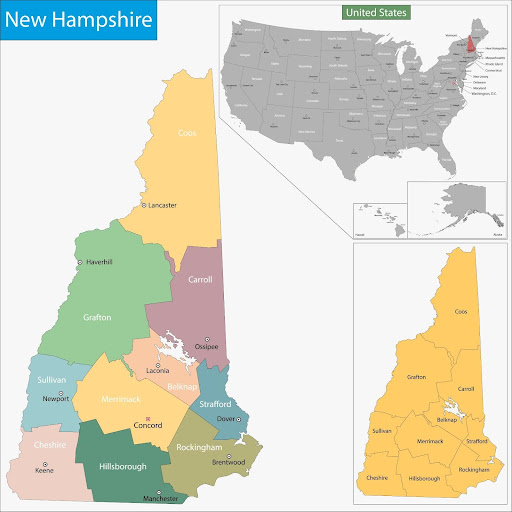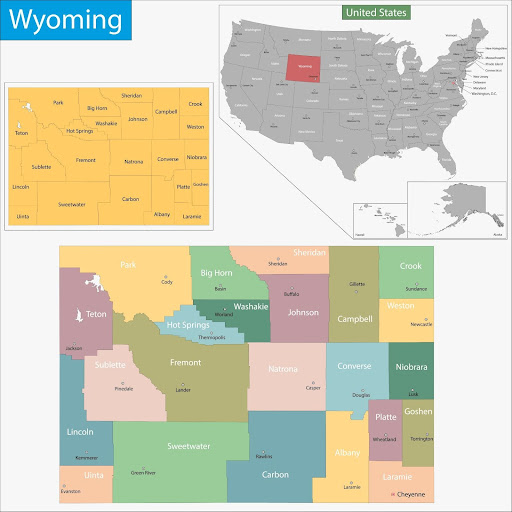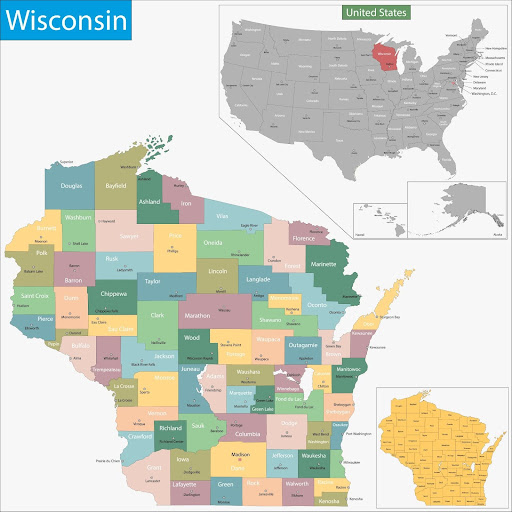Table of Contents
New Hampshire’s wildfires are fast, local, and often fueled by tradition. For fire investigators, this means tight terrain, human-heavy ignition patterns, and working shoulder-to-shoulder with town fire wardens who’ve been on the job for decades. If you're investigating a scene here, you'll need to know more than just NWCG protocols. You'll need to know the people, the terrain, and the stories behind both.
This guide lays out the wildland fire resources in New Hampshire, from the regional fire season timeline and forest fuel types to who has jurisdiction, where to get training, and how to track fires in real time.
Cross-checking other regions? Our wildland firefighting resources make comparison easy.
Live Incident Updates & Maps
Use this tool to monitor active wildfires and incident reports across New Hampshire:
State Overview
New Hampshire isn’t the first place that comes to mind when you think “wildfire,” but that’s precisely why investigators need to pay attention.
- Northern Forest Zone (Coös County): Vast, remote hardwood and softwood stands. Fires tend to smolder for days, especially in duff-heavy terrain. Access is often limited to ATV or on foot.
- Central Lakes Region: Densely wooded recreational zones with high human traffic. Expect campfire-related starts, especially near popular parks and trail systems.
- Southern Urban-Rural Interface: As sprawl meets pine and oak forests, ignition risk increases near power lines, roadways, and backyards. Fires move faster and closer to homes here.
The fuels might be different from the West, but investigation in this region calls for just as much rigor, local knowledge, and interagency coordination.
Wildfire Season Timeline
New Hampshire’s fire season may be shorter, but it’s no less intense when it hits. The state typically sees two main peaks:
- Spring (April–June): The primary fire season. Leaf litter and dead grass ignite easily before green-up. Most fires are caused by humans, debris burning, equipment use, and escaped campfires.
- Fall (October–early November): A second season emerges when foliage dries and winds pick up. Investigators often see smaller, fast-burning surface fires started by careless burning or power equipment.
Summer months are usually less active due to higher humidity and full vegetation, but extended droughts can change that fast.
Key State Agencies Involved
Wildland fire suppression and investigation in New Hampshire is a tight-knit, coordinated system. Here’s who leads what:
Local Wildland Firefighting Resources
The initial attack in New Hampshire was hyper-local and usually municipal. This includes town forest fire wardens, volunteer and municipal fire departments, and more.
List of Local/State/Federal Fire Response Agencies
Expect to coordinate with a diverse web of responders, depending on the land ownership and incident complexity:
- Forest Protection Bureau (FPB) Rangers: Lead state-level wildfire suppression and investigation. They’re often the first point of contact for rural and state land incidents.
- NH Fire Marshal Investigators: Step in when fires threaten structures, appear suspicious, or occur in more urbanized areas. They support cause determination and criminal investigation.
- Town Fire Departments: Responsible for suppression and early scene security. Some maintain wildland-specific equipment and personnel.
- Town Forest Fire Wardens: Issue permits, assist with suppression, and provide historical knowledge of burn practices and local ignition patterns.
- County Sheriff’s Offices: Occasionally involved in evidence control, ignition interviews, or crowd management during larger incidents.
- U.S. Forest Service: Investigates fires on national forest land. Coordinates with FPB and uses NWCG protocols, especially for multi-jurisdictional fires.
Contact Numbers and Emergency Links
- To Report a Wildfire: Dial 911
- Forest Protection Bureau Dispatch: (603) 271-2214 | www.nhdfl.org/fire-control
- NH Fire Marshal’s Office: (603) 223-4289 | www.firemarshal.dos.nh.gov
- White Mountain National Forest Fire Info: (603) 536-6100
- InciWeb Fire Map: https://inciweb.nwcg.gov
Training & Volunteering
Wildland fire training in New Hampshire follows national NWCG standards, with state-led and regional training hubs.
NWCG-Approved Academies and Centers
Volunteer and Seasonal Training Opportunities
- Volunteer Wildland Firefighter Program: FPB offers training to volunteers each spring. Most are affiliated with town fire departments or serve as supplemental support during high fire danger.
- Red Card Qualification Support: FPB and WMNF assist with red card (FFT2) qualifications for both municipal responders and new wildland firefighters.
- Community Mitigation Projects: Volunteers can participate in fuel reduction, firewise assessments, and educational outreach through town fire departments and state forestry initiatives.
Stay Informed on New Hampshire’s Wildland Fire Landscape
Wildfires in New Hampshire don’t always grab headlines, but they carry high stakes, especially near the expanding WUI and cherished recreation areas.
As an investigator, precision matters. You’ll need to factor in deep organic layers, complex ignition sources like woodstoves and burn barrels, and unpredictable access to remote terrain.
Stay current on weather trends, understand the human footprint across the forest, and build ties with town wardens, who often know what’s burning before it’s reported.
And don’t underestimate the power of a windy spring day in a leaf-strewn yard. That’s where many investigations in this state begin.
FAQs
How do I report a wildfire in New Hampshire?
Call 911 immediately. For rural areas or ongoing conditions, contact the NH Forest Protection Bureau at (603) 271-2214.
Do I need a permit to burn in New Hampshire?
Yes. All outdoor burning requires a permit from your local Forest Fire Warden, unless the ground is covered in snow. Even then, check local regulations.
Who investigates wildfires in New Hampshire?
- On state or private land, the Forest Protection Bureau takes the lead.
- On federal land, the U.S. Forest Service investigates.
- In urban interface areas, the NH Fire Marshal or local fire departments may be involved. Investigations are often joint operations when complexity or criminal activity is suspected.










